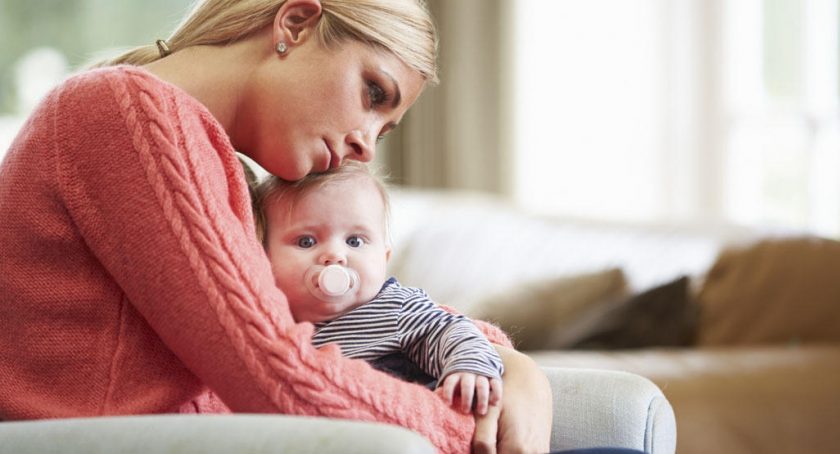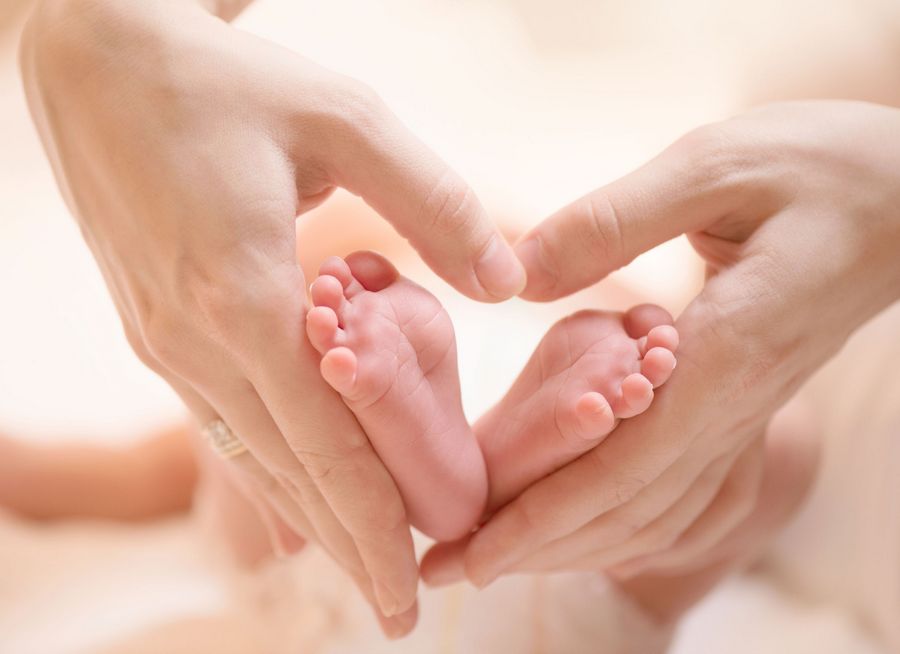Postnatal Depression
Childbirth can cause chaotic emotions, which can easily be changed. From the excitement and great joy of intense fear and anxiety. But such sudden changes in mood can lead to something you do not expect – depression.
Many young mothers experience mixed feelings after childbirth, which include sudden mood changes, crying, hysterical laughter. But some of them are experiencing more serious, long-term form of low spirits known as female postnatal depression. Very rare there appears extreme form of postnatal depression – postnatural psychosis.
Postnatal depression in women does not mean that she has the weak temperament or that she is a bad mother. Sometimes female postnatal depression is a complication after childbirth or psychological unreadiness of a woman to become a mother. If you have symptoms, its timely treatment can help you control your emotions and enjoy your baby.

Symptoms
How long postnatal depression lasts depends primarily on its type. Symptoms of postnatal blues:
- mood changes, anxiety;
- sadness and irritability;
- weeping and decreased concentration on the problem;
- difficulties with sleep.
Postnatal depression symptoms can be similar to postnatal blues symptoms, but in this case, they are longer and more intense. Ultimately, this interferes with the ability to look after the child and perform other everyday activity. The symptoms may include:
- loss of appetite, insomnia;
- intense anger and irritability;
- overwhelming fatigue and loss of interest to sex;
- lack of joy in life;
- feelings of guilt, shame or inadequacy;
- rejection from family and friends, or thoughts to harm them or child.
Read more to learn symptoms of postnatal depression.
So if you ask a question: How long does postnatal depression last? – remember, if untreated, the postnatal condition can last for a year or more. Postnatal psychosis is a rare condition that usually develops during first weeks after childbirth. Occurrence and nature of this depression type have severe nature. Signs and symptoms of postnatal psychosis may include:
- confusion and disorientation in time;
- hallucinations and paranoia;
- delirium;
- attempts to harm oneself or the child.
Stages – When to Seek for Help
If you feel symptoms described above after childbirth, and you can not deal with them yourself, better seek qualified help. In cases when you are shy or afraid to admit it, try to realize that is actually going on with you. You should always consult a doctor in the case when:
- symptoms do not disappear after about two weeks;
- your condition worsens;
- it is difficult for you to take care of your child;
- it is difficult to perform the daily activity;
- there appear thoughts to harm yourself or your baby.
Early treatment will help to speed up your recovery. If you think that their postnatal psychosis begins to develop, call your doctor. Do not wait and hope for improvement in your condition. Postnatal psychosis can cause life-threatening consequences. Usually, there are no definitive causes of postnatal depression, because such state can be caused by any physical and emotional lifestyle factors, all this can play an important role in its development.
Physical Changes
A sharp decrease in hormones level in the body (estrogen and progesterone) after childbirth can trigger postnatal depression. Other hormones, produced by the thyroid gland, can also be sharply reduced, they can cause the sense of fatigue, apathy. Changes in blood, its volume, pressure, immune system and metabolism alteration may be causes that contribute to fatigue and mood changes.
Emotional Factors
When you are sleep deprived and overwhelmed, even most minor problems can turn into unsolvable tasks. You may worry about your ability to take care of your baby. Also, you may obtain the feeling of your own unattractiveness. You may feel that you are losing control of your life. Each of these factors may cause such kind of a depression.
Lifestyle and its Impact
Many lifestyle factors can lead to such disease as postnatal depression, including your child or his sibling’s demands, difficulties with breastfeeding, your body depletion, financial problems in family and lack of support from your husband or other relatives.
Treatment
Treatment and recovery vary depending on the severity of your depression and your personal and individual needs.
Postnatal blues usually disappear on its own within a few days to 2 – 3 weeks. But at the same time, try to get as much time for rest as you can. Accept help from family and friends. If you wish to communicate with other moms. It can seize your emotional state, you can get a lot of useful information from them and support you need so much. Do not drink alcohol that can enhance mood changes, as well as negative impact on your baby while breastfeeding.
Consulting Psychologist
This method of treatment can help to solve your problems through conversation with psychiatrist or psychologist. Due to this kind of consultations, you can find effective ways to cope with symptoms and solve bothering your issues. Sometimes advice is also useful for family or relations therapy.
Antidepressants
Antidepressants are highly effective and irreplaceable drugs in case of the treatment. If you are breastfeeding, it is important to know that any medication that you are taking won’t enter breast milk. Yet, some antidepressants may be prescribed by a doctor during breastfeeding with minimal risk of side effects for your baby. Consult your doctor to weigh all the risks and benefits of specific antidepressants.
Hormone Therapy
Estrogen treatment can help to neutralize sharp decrease in this hormone level after birth. Injection of these hormones may relieve some of the postnatal depression symptoms in women. Studies on the effectiveness of hormone therapy use for postnatal depression treatment are limited, so it is necessary to weigh all cons and pros. As in case of antidepressants, consider potential risks and benefits that await you after hormone therapy with your doctor.
In case of qualified treatment, postnatal depression should disappear within a few months, and only in some cases, the disease lasts up to a year. In this case, it is important to continue treatment even after you start to feel a little better because premature treatment discontinuation can only lead to relapse.
Postnatal Psychosis as the Third Type of Postnatal Depression
Postnatal psychosis is the most severe stage of depression, which requires immediate treatment and often in the hospital. Only in case of appointment of the combination of drugs such as antipsychotics, antidepressants and mood stabilizers which may be used to control signs and symptoms of psychosis, you can feel safe. Sometimes, electroconvulsive therapy is used as a method of treatment. Postnatal psychosis treatment may lead to loss of ability to breastfeeding. Your treatment and separation from child complicate breastfeeding process, and some medications used to treat postnatal psychosis are not recommended for breastfeeding women. If you have a postnatal psychosis, a medical team will help you to solve this problem.
Postnatal Depression Treatment at Home
Postnatal depression is usually not a reason to visit a doctor, it is usually your desire. If you have decided to deal with this disease independently, you can do several things for yourself to improve your health. In fact, good care about yourself can help to speed up recovery.

Maintain healthy and active lifestyle. Perform physical activity, do morning exercises, go for a walk with your baby every day. Eat healthy and non-caloric food and in no case do not drink alcohol. Do not put pressure on yourself. Forget some of your expectations about ideal family, do in what you can and leave the rest. Ask your relatives or friends for help when necessary. Find time also for yourself. When you feel that the world is spinning around you, you feel darkness in the eyes, take some time to relax. Get dressed, leave the house and visit friends or do some task. Avoid loneliness and isolation. Tell your partner, family or friends about how you feel. Ask other mothers about their experiences and do not forget that the best way to take care of your baby is to take care of yourself.
Coping with the Disease
Postnatal depression can also have wave action, causing emotional stress for all patient’s close people. When a young mother is in a depressive state, the risk of depression at new family father may also increase. In case if you are having some problems with dealing with postnatal depression in your family, talk to your doctor. Female depression is treatable. The sooner you get help, the better for you and your family.







